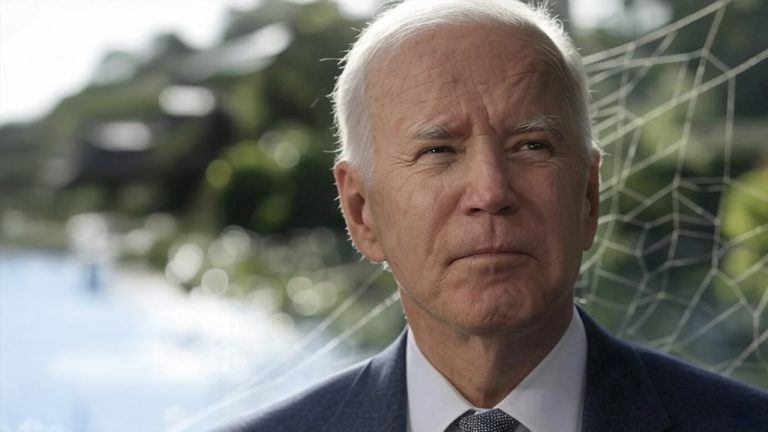 Nigeria’s Securities and Exchange Commission is working to bring licensed crypto exchanges into the formal tax system, with a related bill likely to pass in early 2025. Nigeria Aims to Increase Revenue The Nigerian Securities and Exchange Commission (SEC) has announced it is working to bring transactions on licensed cryptocurrency exchanges into the formal tax […]
Nigeria’s Securities and Exchange Commission is working to bring licensed crypto exchanges into the formal tax system, with a related bill likely to pass in early 2025. Nigeria Aims to Increase Revenue The Nigerian Securities and Exchange Commission (SEC) has announced it is working to bring transactions on licensed cryptocurrency exchanges into the formal tax […] This week, The Wall Street Journal highlighted potential tax complications for the publicly traded company Microstrategy, particularly concerning unrealized gains. According to the report, the Corporate Alternative Minimum Tax (CAMT), introduced under the Biden administration, could impose a notable financial obligation on the firm. Microstrategy’s Billion-Dollar Bitcoin Gamble Hits a Snag: CAMT Tax Law Looms, […]
This week, The Wall Street Journal highlighted potential tax complications for the publicly traded company Microstrategy, particularly concerning unrealized gains. According to the report, the Corporate Alternative Minimum Tax (CAMT), introduced under the Biden administration, could impose a notable financial obligation on the firm. Microstrategy’s Billion-Dollar Bitcoin Gamble Hits a Snag: CAMT Tax Law Looms, […] At the WAGMI conference held in Miami on Friday, Aaron R. Day, the Chairman and CEO of the Daylight Freedom Foundation, delivered a compelling address centered on Roger Ver’s troubles with the U.S. government. During his speech, Day emphasized to the audience the gravity of the matter, describing it as a “high stakes situation.” Miami […]
At the WAGMI conference held in Miami on Friday, Aaron R. Day, the Chairman and CEO of the Daylight Freedom Foundation, delivered a compelling address centered on Roger Ver’s troubles with the U.S. government. During his speech, Day emphasized to the audience the gravity of the matter, describing it as a “high stakes situation.” Miami […]

The European Parliament’s Sarah Knafo said it’s time to stop “totalitarian temptations” by the European Central Bank and adopt Bitcoin.
European lawmaker Sarah Knafo called on the European Union to establish a strategic Bitcoin reserve while rejecting the proposed adoption of the “digital euro,” a central bank digital currency (CBDC) under development by the European Central Bank (ECB).
Knafo, a French magistrate and a member of the European Parliament since June, delivered a pro-Bitcoin (BTC) speech, calling on European lawmakers to launch a strategic BTC reserve.
“No to the digital euro, yes to a strategic Bitcoin reserve,” Knafo said in an X post, which included a video of her speech before the European Parliament.

India has recovered $14 million in goods and services tax from crypto firms like WazirX, but Binance has yet to pay its $85 million tax evasion liabilities, the minister said.
The Indian government has detected a significant amount of unpaid goods and service taxes (GST) by major cryptocurrency exchanges, including Binance and WazirX.
India’s Minister of State for Finance, Pankaj Chaudhary, said the government has found 824 crore Indian rupees ($97 million) in GST in unpaid taxes by several crypto exchanges, The Economic Times reported on Dec. 3.
Authorities have reportedly initiated multiple related investigations into crypto exchanges, including WazirX, CoinDCX and CoinSwitch Kuber.
 The ruling party of South Korea is, once again, considering the postponement of the enactment of crypto-specific taxes, as this could influence public opinion towards the government. The party aims to implement these taxation rules by 2028, citing a lack of necessary regulations and institutional infrastructure as the primary reasons for this measure. South Korea […]
The ruling party of South Korea is, once again, considering the postponement of the enactment of crypto-specific taxes, as this could influence public opinion towards the government. The party aims to implement these taxation rules by 2028, citing a lack of necessary regulations and institutional infrastructure as the primary reasons for this measure. South Korea […] The People Power Party, a major political party in South Korea, has proposed to defer cryptocurrency taxation for up to two years as part of a general election pledge. The Korean government has already postponed establishing cryptocurrency taxation until 2025 when income generated from cryptocurrencies will be taxed at 22%. South Korea to Delay Cryptocurrency […]
The People Power Party, a major political party in South Korea, has proposed to defer cryptocurrency taxation for up to two years as part of a general election pledge. The Korean government has already postponed establishing cryptocurrency taxation until 2025 when income generated from cryptocurrencies will be taxed at 22%. South Korea to Delay Cryptocurrency […] Russian lawmakers intend to soon approve four bills designed to regulate various aspects of cryptocurrencies, a high-ranking member of the Russian parliament announced. Meanwhile, Russian companies are already using digital assets in cross-border settlements, the official noted. Russian Legislature to Vote on Crypto Laws by End of July The State Duma, the lower house of […]
Russian lawmakers intend to soon approve four bills designed to regulate various aspects of cryptocurrencies, a high-ranking member of the Russian parliament announced. Meanwhile, Russian companies are already using digital assets in cross-border settlements, the official noted. Russian Legislature to Vote on Crypto Laws by End of July The State Duma, the lower house of […] The government of Kazakhstan has collected over $7 million in taxes this and last year from enterprises mining cryptocurrency in the country. The news comes amid growing regulatory pressure that is limiting the industry’s access to low-cost energy while increasing its tax burden. Miners Face Higher Expenses, More Challenges Under New Legislation Kazakhstan’s coffers have […]
The government of Kazakhstan has collected over $7 million in taxes this and last year from enterprises mining cryptocurrency in the country. The news comes amid growing regulatory pressure that is limiting the industry’s access to low-cost energy while increasing its tax burden. Miners Face Higher Expenses, More Challenges Under New Legislation Kazakhstan’s coffers have […]
The proposed regulatory changes seek to simplify how DeFi returns are taxed and reduce the “administrative burden” for taxpayers.
The tax treatment of lending and borrowing on decentralized finance (DeFi) protocols could soon be changed in the United Kingdom, as the taxation arm of the Treasury is seeking input on a possible new regime.
An April 27 consultation by HM Revenue and Customs will run until June 22 and asks for “investors, professionals and firms engaged in DeFi activities” along with representative bodies and think tanks to submit their views on the government's proposed DeFi tax treatment.
Under the proposed legislative changes, crypto used in DeFi transactions wouldn’t be treated as a disposal for the purposes of tax, which usually trigger a Capital Gains Tax (CGT) event.
Instead, CGT would apply — and a taxable event would occur — when cryptocurrencies are disposed of in a non-DeFi transaction.

According to the consultation, a transaction must meet certain criteria to be considered a DeFi transaction.
Specifically, it should involve the initial transfer of crypto assets from a lender to a borrower, or through a smart contract, with the borrower being obligated to return the tokens.
HMRC Update on DeFi Guidance
— Jme - UK Crypto Accountant (@CryptoTaxJme) April 27, 2023
I will take time to digest. But here are some pieces:
1. Clear preference to options
2. They agree it needs to be changed
3. Another call for evidence #crypto #tax #accounting #hmrc https://t.co/O6VrTxNUCk
Additionally, the lender should have the right to withdraw the same amount of tokens that were initially lent or staked.
The aim of the consultation is to establish a framework that “better aligns” the taxation of cryptocurrency assets used in DeFi lending and staking transactions while making it easier for users to comply with the regulations. It noted:
“To reduce the administrative burden for participants, the new tax framework could treat all DeFi returns as being revenue in nature and charged to a new miscellaneous income charge specific for cryptoasset transactions.”
The consultation is the second stage of a five-step process, which will be followed by drafting legislation, implementing and monitoring, and ultimately, reviewing and evaluating the change.
Related: UK includes crypto investments under the Investment Manager Exemption
The British government took the first step in the process in July by soliciting feedback on the taxation of crypto asset loans and staking within the context of DeFi.
Simplifying the administrative process was again noted as the main objective as well as reducing costs for taxpayers participating in DeFi while also exploring how the tax treatment could better reflect the economic substance of these transactions.
Magazine: Best and worst countries for crypto taxes — plus crypto tax tips